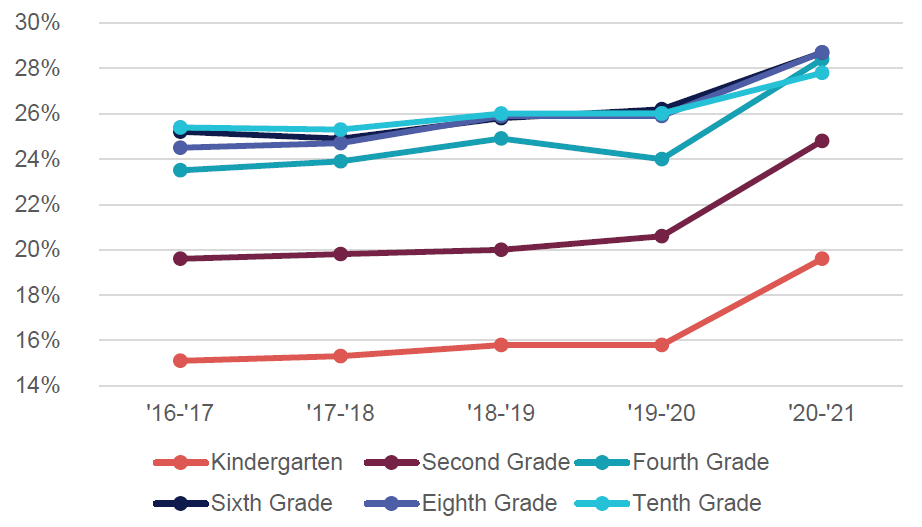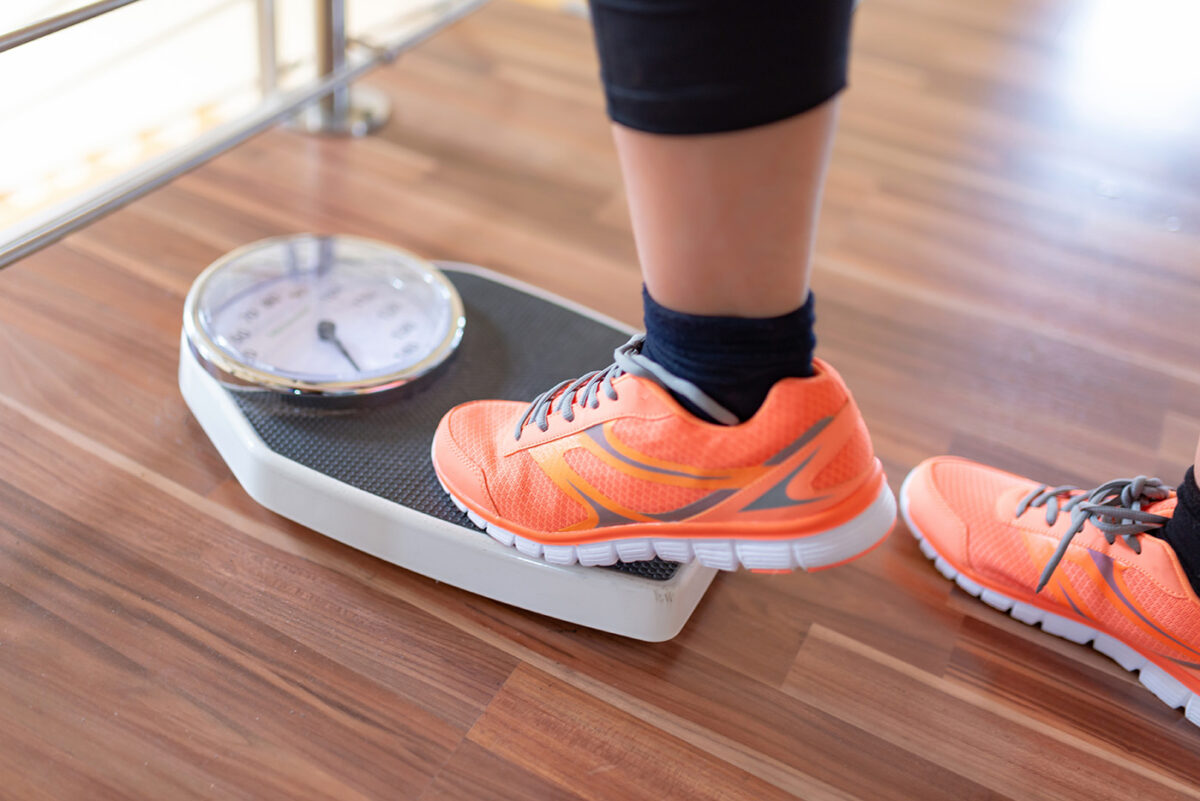
The percentage of Arkansas public school students with a body mass index (BMI) measurement in the obese range increased to a record level in the 2020-21 school year — results that coincide with the initial wave of the COVID-19 pandemic — according to a new ACHI report on childhood obesity.
The proportion of students designated as obese increased significantly in all grades that were measured for the 2020-21 school year. More than one in four (26%) public school-age children had a BMI measurement classified as obese, the largest percentage since data collection began in 2003 and up from 22.9% the previous year. Studies in other states have shown similar weight increases among children during the pandemic, likely as a result of decreases in physical activity and reduced access to healthy school meals.
Compared to the year prior, the proportion of students in the obese range (BMI of 30 or greater) during the 2020-21 school year increased more among younger children than older children. However, a larger proportion of older students were designated as obese when compared to younger students, which is consistent with results from previous years.
Percentage of Arkansas public school students with a BMI classification of obese, by grade, 2016-17 through 2020-21 school years

ACHI’s local area school and district student BMI dashboard details student weight classification percentages by public school district, school, and grade — information that has been used in the preparation of grant applications and other funding requests to secure support for a variety of obesity-related interventions in the state. Along with requiring BMI data for grant proposals, the Arkansas Department of Education has asked schools to include BMI information in their annual improvement plans.
Act 1220 of 2003, passed by the Arkansas 84th General Assembly, spearheaded initiatives to address obesity among school-age children statewide. Under this legislation, schools are required to collect students’ height and weight measurements and estimate a BMI percentile by age for each student.
The findings in this report underscore the continued need for families, educators, and policymakers to support Arkansas children in making healthy choices about diet and physical activity — choices that have lifelong impacts on health and wellbeing. According to the Centers for Disease Control and Prevention, Arkansas ranks 47th among states for obesity among adults, with 36% of the adult population designated as obese in 2020. Research shows that obese or overweight children are more likely to be overweight or obese as adults, which can lead to diabetes, high blood pressure, heart disease, and other health problems.
Ongoing measurement and evaluation of student BMI is critical to address the childhood obesity epidemic and the emergent factors that influence it. The data from this report — as well as additional ACHI research from 2021 indicating that childhood obesity and socioeconomic status are linked — supports further study. In the face of new challenges, access to local-level BMI data can help families, healthcare providers, and researchers address individual barriers to a healthy lifestyle that have only been augmented by the COVID-19 pandemic.
See news coverage of the report from Talk Business & Politics, KAIT, KNWA, and KATV.






